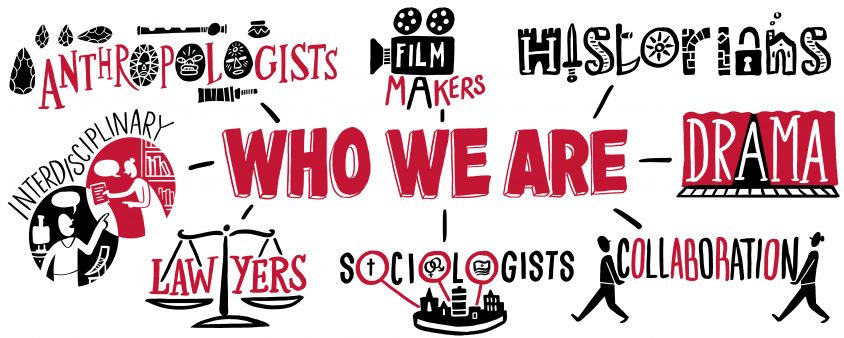
Who We Are
We are an interdisciplinary team of QUB scholars from History, Law, Drama, Creative Arts, English, Geography and the Faculty of Electronics, Electrical Engineering and Computer Science.
-
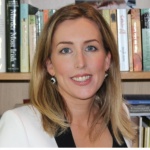
Anna Bryson (Core Team)
Senior Lecturer
+44 28 9097 3453 a.bryson@qub.ac.ukRead MoreAnna Bryson is a Senior Lecturer in the QUB School of Law. She is currently working on two ESRC funded projects – ‘Apologies, Abuses and Dealing with the Past’ and ‘Brexit and Northern Ireland: The Constitutional, Conflict Transformation, Human Rights and Equality Consequences’. Her research has developed along three closely related lines: modern Irish history, socio-legal studies and conflict transformation.
Her PhD was based on an in-depth oral history study of a Mid-Ulster town in the period 1945-1969. Since then she has developed considerable expertise in conducting interviews for a wide range of social and historical investigation projects including those focusing on imprisonment, the history of women, and the social and political history of the Northern Ireland peace process. In 2014 she published (with Seán McConville) The Routledge Guide to Interviewing: Oral History, Social Inquiry & Investigation. More recent publications draw on both interviews with international cause lawyers and civil society actors and her own previous research in Northern Ireland. ‘Victims, Violence and Voice: Transitional Justice, Oral History and Dealing with the Past’ (2016) explores the ethical dimensions of sensitive field research and draws out some of the theoretical and practical intersections between law, history, and the interview.
Since 2015 Anna has been working together with colleagues from QUB, Ulster University, the Committee on the Administration of Justice, and a former senior Foreign and Commonwealth Office lawyer to develop a Model Bill for the ‘Dealing with the Past’ elements of the Stormont House Agreement (SHA). She received the 2016 QUB Vice-Chancellor’s Research Award (post-doctoral category) for her work on the proposed Oral History Archive (OHA), one of the four key mechanisms agreed in the SHA.
She is a founding director of the Oral History Network of Ireland and an active member of the Healing Through Remembering Stories Network. She is currently one of two Northern Ireland representatives of the Oral History Society. She has served on the advisory board of more than a dozen conflict-related oral history projects including those initiated by the Maze-Long Kesh Development Corporation, Diversity Challenges, INCORE and the Verbal Arts Centre. She has also acted as a consultant for both statutory and voluntary organisations with regard to the design and development of sensitive oral history projects.
Anna is an executive member of the Committee on the Administration of Justice, a member of the board of the Centre for Cross Border Studies in Ireland, and a member of the AHRC Peer Review College.
-
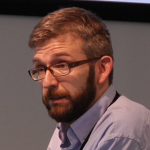
Ronan Deazley (Core Team)
Professor of Copyright Law
+44 28 9097 3866 r.deazley@qub.ac.ukRead MoreRonan Deazley is the Professor of Copyright Law at Queen’s University Belfast. He joined the Law School at Queen’s in September 2015, having previously taught at the University of Glasgow, the University of Birmingham and Durham University.
He has published extensively on the history of copyright law. At present, however, his main research interests concern how copyright law and policy impacts the work of archives, libraries and other memory institutions in making our shared cultural heritage available online, within and across borders.
Professor Deazley is also a qualified archivist, the former Copyright Policy Advisor to the Scottish Council on Archives, and is currently one of two Northern Ireland representatives of the Oral History Society.
-

Sean O’Connell (Core Team)
Oral Historian
+44 28 9097 1417 s.oconnell@qub.ac.ukRead MoreA Mancunian by birth, Sean has lived and worked in Belfast since 1999. Fascinated by the city’s rich social history, he has carried out oral history research in Belfast since his arrival. His projects have centred on the history of working class communities (particularly the impact of deindustrialisation and urban redevelopment), the history of the credit union movement, the impact of car crime, and the social memory of the Belfast ‘hard man’.
Publications based on his oral history research include Credit and Community: working-class debt in the UK since 1880 (Open University Press: 2009) and ‘An age of Conservative Modernity, 1914-1968’ in Belfast 400 (edited by Sean Connolly; Liverpool University Press, 2013). This last example, which examined Belfast’s social history led to an invitation to take part in the recent revamp of the Ulster Museum’s Modern History Gallery. More recently, Sean joined the Advisory Board for the Ulster Museum’s Collecting the Troubles and Beyond project.
Sean is an advocate for the role that oral history can play within the university curriculum to provide opportunities for academics and students to become involved with the wider community outside Queen’s. He supervises undergraduate students in annual collaborative projects with BBC NI, the Ulster Museum and with community groups such as the Sailortown Regeneration Group and the Holyland Reunion Group. Sean also supervises students who undertake summer internships in which they utilise the oral history skills they have developed during their studies. This has involved students carrying out work with the Prisons Memory Archive, Artsekta (interviewing members of the local Indian community) and on various Heritage Lottery funded projects.
Sean has been an oral historian for twenty-five years. His recognised expertise led to his involvement in the BBC/British Library Millennium Oral History Project – The Century Speaks – which led to the collection of thousands of oral history interviews across the UK.
In more recent years, he has been an editor of the journal Oral History. Sean has won awards for his teaching of oral history twice: at the University of Liverpool (1996) and at Queen’s University (2016). He has supervised numerous postgraduate students working on oral history on themes such as: cinema-going in post-war Belfast; the female experience of university life 1945-1970; ethnic minorities in twentieth century Belfast; deindustrialisation in Belfast and North East England; and Irish Republican Women, 1969-86.
-

Kieran Connell
Lecturer
Read MoreKieran Connell moved to Belfast in 2015 to take up a lecturing position at Queen’s, having previously worked at the University of Birmingham. He has used oral history widely in his research, including in a project on race and immigration in 1980s Britain and, more recently, in a history of cultural studies.
He is passionate about the importance of universities being involved in wider social and cultural life and has put on various public discussion events, workshops and exhibitions. Alongside oral history, Kieran also has a particular interest in photography.
-
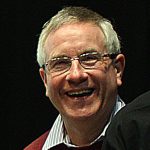
David Grant
Senior Lecturer in Drama
Read MoreDavid Grant is a Senior Lecturer in Drama at Queen’s with an extensive background in theatre as a director and workshop facilitator.
He is fascinated by the orality of live performance, and has written about the oral dimension of theatre from Shakespeare to current community drama practice, including verbatim theatre such as the early work of Charabanc Theatre Company and the Theatre of Witness.
He recently worked with the Tiger’s Bay Men’s group to devise Days in the Bay, a performance of stories inspired by the changing streetscape of North Belfast.
-
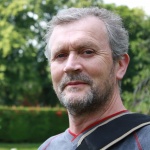
Cahal McLaughlin
Chair of Film Studies
Read MoreCahal McLaughlin is Chair of Film Studies in the School of Arts, English and Languages and is a documentary filmmaker, whose past films have been broadcast by BBC, C4 and RTE.
Oral history methodologies play a large part in his film work. He is the director of the Prisons Memory Archive (PMA), a collection of 175 walk-and-talk filmed interviews inside the Troubles’ prisons of Armagh Gaol and the Maze and Long Kesh Prison (samples are available at PMA website).
The PMA recently received a grant from the Heritage Lottery Fund to have the full archive hosted in the Public Records Office Northern Ireland, which we hope to achieve by early 2018).
Cahal is currently working on an AHRC-funded documentary film about the survivors of the use of force by UN peacekeepers in Haiti. He is a member of Healing Through Remembering’s Storytelling Network.
